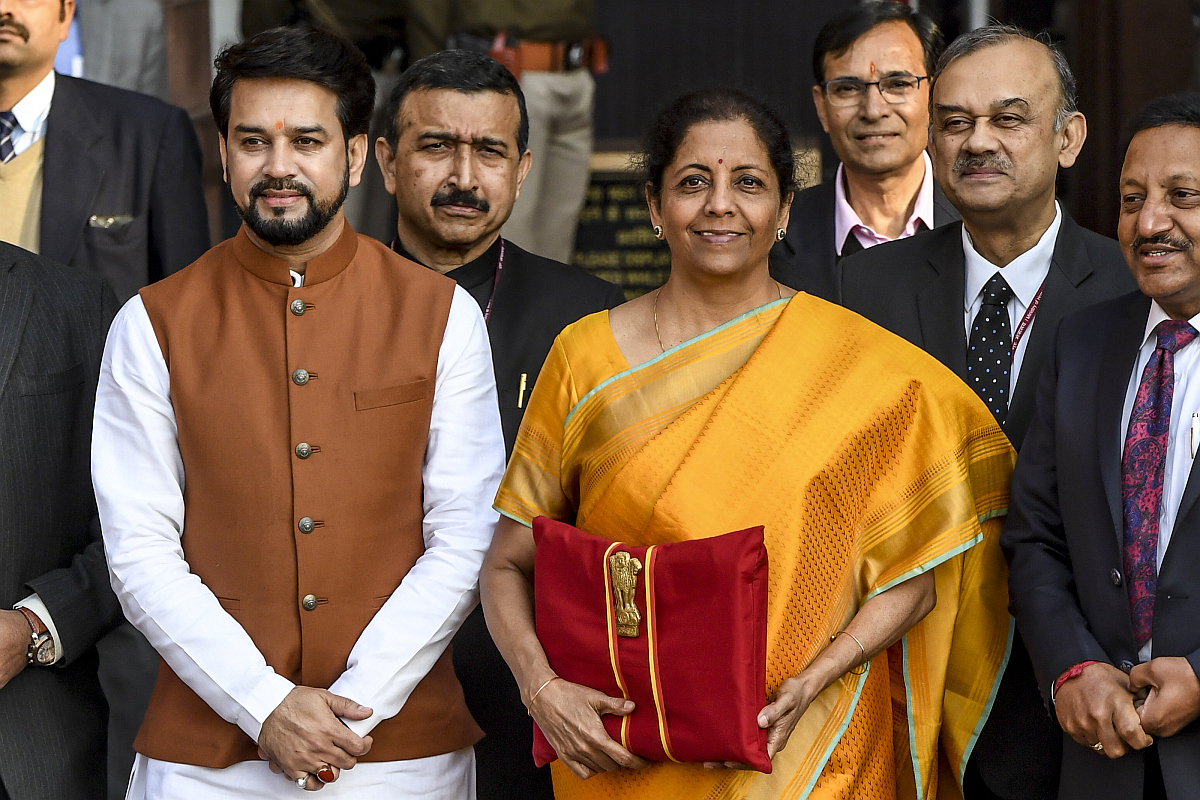Never has the need for structural reforms been so critical for the Indian economy nor so conspicuous in its absence, as in the second budget speech of Mrs Nirmala Sitharaman, which felt like a continuation of her previous effort, significant because of its promises belied. There was no innovative, expansionary vision on display as the hapless finance minister, grappling with revenue, debt, expenditure going out of kilter and jobs disappearing across the board, used eloquent and unwarranted optimism instead, projecting a 10 per cent growth.
Mrs Sitharaman must have been sorely aware that she represented a government only talking of wealth creation while its accomplishments were southward bound. Expectedly her budget numbers conceal far more than they reveal, and this absence of transparency is probably what ails the Indian economy as much as the problem-policy disconnect. This also explains why the minister flagged GST as showpiece of the government’s reforms though what obtains is a historic opportunity entangled in a frustrating web and her ameliorative measure rather unconvincing.
The talk of an “aspirational India” was not accompanied by a credible action plan but was a forced injection of joy into a bleak house. The doubling of farmer’s income is yet another discredited theme with policies actually removing the farmer from that aspirational destination, courtesy state-Centre imbroglios afflicting most of the schemes. To press home a point, 15,000 farmers commit suicides every year and there is nothing in the16-point plan to dramatically change the terms of trade in favour of the farmer or revive the rural space.
The Rs 2.83 lakh-crore spend on farming and allied sectors is scarcely enough to make a difference in this humongous space. Again, warehousing for crops and cold chains are ideas that have failed because they have not been thought through; nor have the PM Kisan scheme or the Fasal Bima Yojana, the former too small to help and the latter helping the insurers, not the insured. Hopefully, the promised better-directed MGNREGA will help as will increasing allocations for pro-poor schemes.
The need of the hour was to reform the schemes themselves, removing anomalies to make them truly inclusive or adequately funded. Yet, even the Ayushman Bharat allocation of Rs 6,400 crore remains unchanged. At another level of policy mismatch, powering railways via solar farms will run against the needs of the struggling discoms that cannot have lucrative consumers weaned away.
The promise of infrastructure spend of Rs 100 lakh crore too needs to be viewed in the light of the Rs 1.75 lakh crore of dues from the government that companies investing in infrastructure are to be paid and which has partly caused the investment slump. As far as the bourses were concerned, the Sensex tanked 663 points at the time of writing. Much of the budgetary calculations are prefaced on India leap-frogging to a five trillion-dollar economy by 2024-25, an impossibility unless the economy grows at around 15 per cent per annum between now and then.
Even so, the need to find resources to rev up the economy has seen the budget leave the Fiscal Responsibility and Budget Management Act in shreds with the projected deficit at 3.8 per cent, rendered worse than it looks because a bulk of this is for financing current expenditure, not investment expenditure.
Indeed, rarely has the budget been so redundant for the ordinary Indian or the small businessman, trapped in a veritable abyss, which tinkering with taxes cannot help. For them, the budget would be as cynical as the gimmicky “thalinomics”, as vegetables and certainly lentils remain out of bounds for the poor, or zerobased budgeting for agriculture that farmers have rejected. So much for economic development through infrastructure; just as the caring society portrait is marred by the image of police videographing a man murder another in broad daylight.











